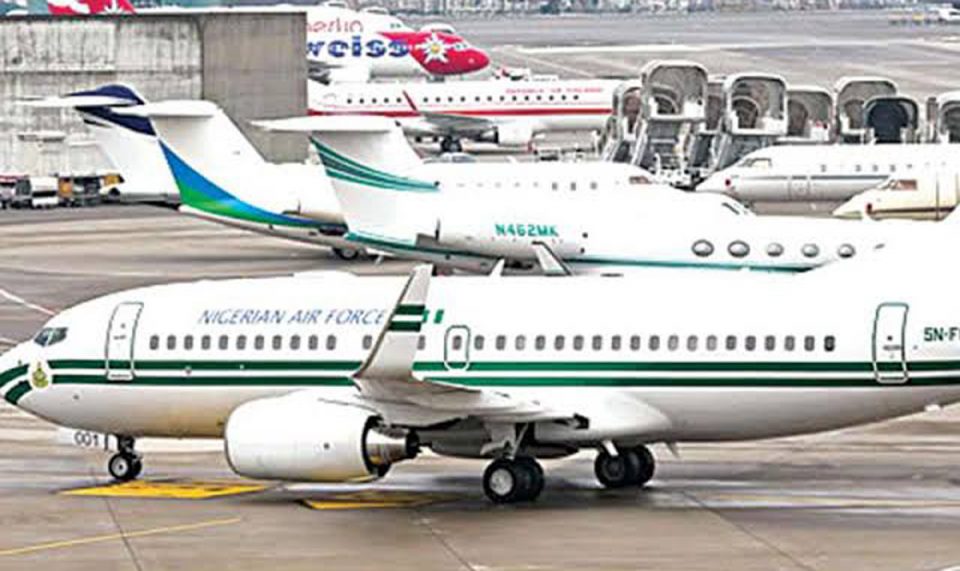Why Nigeria is losing out of billion-dollar of aviacargo industry –Experts
Despite being one of the largest producers of agric products, Nigeria loses $1bn annually to non-certification of agric produce for export according to the coordinator of Aviacargo Roadmap Committee, Mr. Ikechi Uko.
In his presentation titled, “Repositioning cargo operations through the development of agriculture and natural resources in Nigeria” at the ongoing Federal Airport Authority of Nigeria (FAAN) National Aviation Conference (FNAC) in Abuja, Ukoh identified noncompliance of farmers to internationally and domestically accepted standards, lack of certification, inability to trace, lack of access to international markets, lack of knowledge on global requirements, bureaucracy, high cost preservation and packaging to global standard, poor logistics, insecurity, poor airport infrastructure, lack of government support, multiple taxation and many others as factors inhibiting a successful aviacargo industry. The theme for this year’s FNAC is “Sustainability of the Aviation Industry in Nigeria”.
He said that in 2021, the five biggest African exporting nations were South Africa, Nigeria, Egypt, Algeria, and Morocco and that collectively, that powerful cohort of African shippers generated over half (55.7%) of the continent’s overall exports by value.
Using the Airport Council International (ACI) 2021 report, Uko said Nairobi airport is the top in cargo with 363,204 tonnes of cargo; Cairo International Airport (333, 536 tonnes); Oliver Reginald Int’l Airport, South Africa (304,018 tonnes); Addis Ababa Bole Int’l Airport, Ethiopia (226,417) and the Murtala Muhammed International Airport, Lagos with 204,649 tonnes of cargo.
He had expressed concern over the empty cargo aircraft departing the country despite huge agro produce all over Nigeria. He said despite available cargo aircraft which can move farm produce to other parts of the world and equipment provided by logistics firms to move cargo locally, these products still get wasted in various states because there is a lack of markets and information.
He also pointed out that the Federal Government plans to grow cashew export from $252 million to $500 million for 2023 but non-compliance of farmers to internationally and domestically accepted standards and other issues already enumerated has impeded this.
He said for this to improve, agricultural exports from Nigeria must start from a farm certified by the Nigerian Agricultural Quarantine Services (NAQS) or a global GAP registered farm through a secured cargo pathway. He called for enhanced certification of farms and operators in the value chain, adding them to insist on the traceability of all exportable produce and tackle the mayhem at the export cargo terminals.
Also speaking at the FNAC, former president of the Council of International Civil Aviation Organisation (ICAO), Dr. Bernard Olumuyiwa Aliu urged stakeholders in Nigeria’s aviation sector to make aviation a driver of the country’s economy. He said developing a hub does not stop at having strong carriers. It has to be accompanied by the ability to support flights that come into the country, providing the enabling policies and operating environment. “If your aviation industry ranking lags behind your economic ranking at the global stage, then, aviation is not a driver of your economy but a drag,” he said.
Related NewsReal estate professionals’ push for streamlining of regulations… Condemns FG’s collection of 40% IGR from aviation agenciesFG completes concession of Abuja, Kano airports
Brain drain
Another expert who spoke at the conference, was the Director General of NiMeT, Prof. Mansur Bako Matazu, who proffered solutions to brain drain in aviation sector.
He said provision of incentives for professionals; establishing partnerships with other countries; investing in education and training an encouraging entrepreneurship and innovation will stem the tide of brain in the sector. He believes the industry can create a motivated and sustainable workforce that is equipped to meet the current and future challenges of a rapidly changing industry, if these strategies are implemented.
Speaking on the topic: ‘Mitigating the Impact of Brain Drain in the Aviation Industry in Nigeria’, he said for the sake of safety; professionalism and productivity in the sector, there is urgent need to mitigate the trend.
Matazu, who is also the Permanent Representative of Nigeria with World Meteorological Organisation (WMO), said that factors such as lack of infrastructure and investment in the industry; inadequate compensation and benefits for professionals; limited opportunities for professional growth and development a d political instability and insecurity were responsible for brain drain in the sector, adding that long-term planning, development of infrastructure, training programs, and policies under a comprehensive sector roadmap would salvage the situation.
“Loss of highly skilled professionals can have a negative impact on the quality and safety of air transportation in the country. Brain-drain can lead to reduction in competitiveness of the aviation industry in Nigeria, as it may struggle to retain its skilled professionals and attract new talent. Also, the loss of skilled professionals can lead to decreased productivity, reduced revenue, and increased costs associated with training new employees.
“Nigeria’s aviation industry has been historically underfunded, leading to limited investment in infrastructure and facilities. This is a significant cause of brain-drain in the industry. Aviation requires huge investment in infrastructure, facilities, and equipment to operate efficiently and safely. According to the Nigerian Civil Aviation Authority (NCAA) in 2019, Nigeria would require more than ₦1.5 trillion to fix airports infrastructure gap.
“Meanwhile, lack of investment in infrastructure and facilities has led to: poor working conditions, inadequate training and developmental programmes for professionals, and lmited access to modern technology and equipment/instruments”, he said
He recognised the efforts of the current administration and said an aviation roadmap should identify key challenges facing the industry and outline a clear plan for addressing these challenges.




